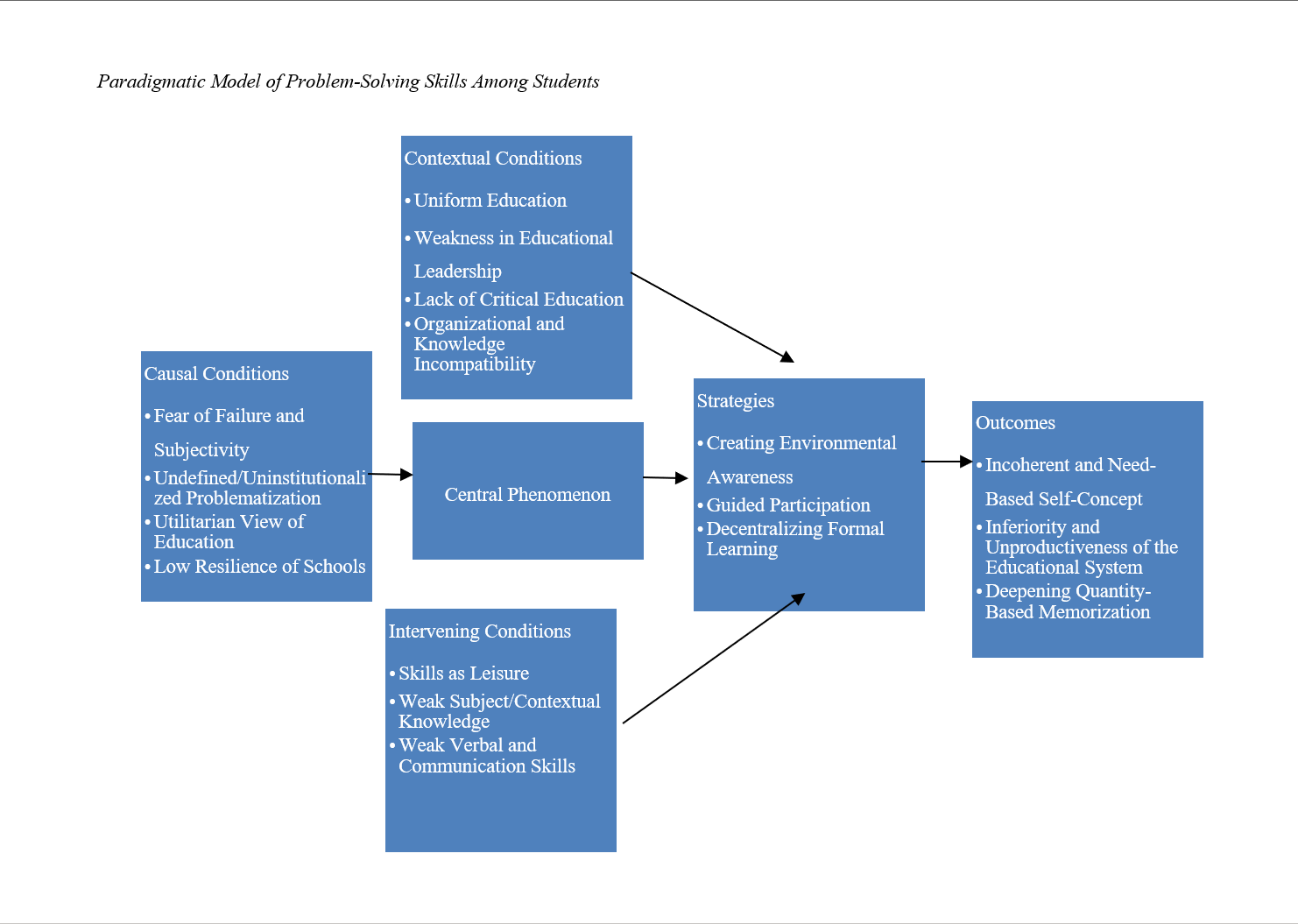Designing a Problem-Solving Skills Model Among Students in Khorramabad City (A Grounded Theory Study of High School Students)
Keywords:
Text-based Prescriptive Policy, Critical Education, Decentralizing Formal EducationAbstract
Objective: Nowadays, problem-solving skills have become one of the most critical components of educational systems. Therefore, the present study aimed to design problem-solving skills among high school students in Khorramabad city.
Methods and Materials: The present study was qualitative and applied in terms of its objective. The research population included specialists, experts, elites, and university professors. Through purposive sampling, 17 individuals were selected. The research tool was semi-structured interviews, whose validity was assessed using face validity and reliability through the inter-coder agreement coefficient, which was found to be 0.88. Data analysis was conducted using the Grounded Theory strategy (three-stage coding method).
Findings: The findings showed that causal conditions included the suspension of skill-oriented plans, lack of knowledge and specialized workforce, and neglect of verbal and communication skills. Contextual conditions included uniform education, weaknesses in educational leadership, the gap in critical education, and organizational and knowledge adaptability issues. Intervening conditions comprised viewing skills as leisure, lack of subject-specific knowledge, and weaknesses in verbal and communication skills. Strategies identified were creating environmental awareness, guided participation, and decentralizing formal learning. The outcomes identified were an incoherent and need-based self-concept, the inferiority and non-productivity of the educational system, and deepening quantity-oriented memorization.
Conclusion: The results indicate that strong leadership groups should be established, and formal education should be decentralized to pave the way for the emergence of students' creativity.
Downloads

Downloads
Additional Files
Published
Submitted
Revised
Accepted
Issue
Section
License
Copyright (c) 2024 Ali Minaee (Author); Zahra Tanha (Corresponding Author); Razieh Jalili (Author)

This work is licensed under a Creative Commons Attribution-NonCommercial 4.0 International License.








